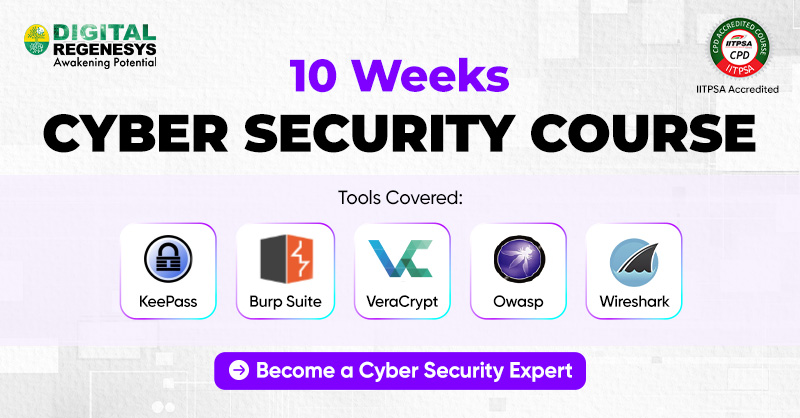Cybersecurity Career Path in Zimbabwe: Jobs, Skills & Growth Opportunities

The cybersecurity career path in Zimbabwe is evolving rapidly, driven by the increasing reliance on digital platforms across industries. As organisations continue to adopt advanced technologies, the risk of cyber threats such as hacking, ransomware, and phishing has grown significantly. Skilled professionals in this field are now essential to protect sensitive data, ensure secure communication channels, and maintain the overall integrity of IT systems.
In this article, you will learn about the fundamentals of cybersecurity, the cybersecurity jobs in Zimbabwe, skill requirements, growth opportunities, and how you can enter and progress in this high-demand profession. This guide aims to give you clear insights into each stage of the journey, from entry-level roles to senior positions.
What Is Cybersecurity?
Cybersecurity is the practice of protecting networks, systems, and data from malicious activities, breaches, and unauthorised access. Cybersecurity career path in Zimbabwe plays a crucial role in safeguarding businesses, governments, and individuals against growing online threats. With sectors like finance, telecommunications, healthcare, and e-commerce relying heavily on digital systems, the need for strong defences has never been greater.
Here are the key areas of focus within cybersecurity:
1. Threat Detection and Monitoring
Continuous observation of systems and networks to identify unusual patterns, suspicious activities, or attempted breaches. This involves using advanced tools to stop threats before they cause damage proactively.
2. Incident Response
Establishing procedures to act swiftly during cyber attacks, minimising disruption, and restoring normal operations in the shortest time possible.
3. Data Protection
Implementing encryption, secure storage, and access control measures to ensure confidential information remains safe from prying eyes.
4. Security Policy Implementation
Developing and enforcing policies that align with best practices, ensuring employees and stakeholders follow security protocols at all times.
Also read – Types of Cybersecurity tools

Cybersecurity Jobs in Zimbabwe
The cybersecurity career path in Zimbabwe offers diverse roles tailored to different skill sets and interests. Professionals can specialise in areas ranging from defence strategy to hands-on technical problem-solving.
Some of the most in-demand cybersecurity jobs in Zimbabwe include:
1. Cybersecurity Analyst
Responsible for monitoring systems, identifying vulnerabilities, and investigating breaches. They work closely with IT teams to develop and implement adequate security measures.
2. Network Security Engineer
Designs secure network architectures, configures protective tools, and ensures networks remain resilient against unauthorised access attempts.
3. Incident Response Specialist
Leads the process of detecting, analysing, and recovering from cyber incidents, ensuring minimal downtime and data loss.
4. IT Risk Officer
Oversees compliance with security regulations, evaluates risks, and implements strategies to mitigate potential threats.
5. Penetration Tester
Simulates cyber attacks to uncover weaknesses, providing organisations with actionable insights to strengthen defences.
You may also like to read about – What is Web Security?
Cybersecurity Job Requirements in Zimbabwe
While job expectations may vary depending on the role, the cybersecurity job requirements in Zimbabwe generally include a mix of technical knowledge, problem-solving ability, and adaptability to evolving challenges.
Key requirements include:
1. Knowledge of Computer Networks and Operating Systems
Understanding how systems communicate and operate is essential for spotting vulnerabilities and implementing defences.
2. Understanding of Cyber Threats and Defence Strategies
Familiarity with malware, phishing, and intrusion tactics allows professionals to prepare countermeasures effectively.
3. Problem-Solving and Analytical Skills
The ability to identify, analyse, and address security issues quickly and efficiently is critical in high-pressure environments.
4. Ability to Work Under Pressure
Cyber incidents often require immediate action, and remaining composed in high-pressure situations ensures effective responses.
5. Commitment to Continuous Learning
As cyber threats evolve, professionals must stay updated with new technologies, tools, and best practices.
What Is the Job of a Cybersecurity Analyst in Zimbabwe?
A cybersecurity analyst plays a pivotal role in the defence strategy of any organisation, acting as the first line of defence against digital threats. This role combines technical expertise with analytical thinking to maintain the security of systems and networks.
Key responsibilities in what is the job of a cybersecurity analyst in Zimbabwe include:
- Monitoring Network Traffic – Continuously checking for suspicious behaviour and potential breaches using specialised monitoring tools.
- Conducting Vulnerability Assessments – Testing systems for weak points before attackers can exploit them, then implementing necessary fixes.
- Implementing Security Measures – Configuring firewalls, encryption, and intrusion prevention systems to strengthen digital defences.
- Incident Response and Mitigation – Acting quickly to contain threats, restore systems, and prevent future attacks.
- Reporting and Documentation – Preparing detailed security reports for stakeholders, outlining risks, actions taken, and recommendations for improvement.
Read more about – What is Data Privacy?
Can You Start Without Experience?
Yes — it is possible to enter the cybersecurity career path in Zimbabwe without prior professional experience. Many professionals start in entry-level IT roles, gradually building the skills needed for more advanced positions.
Common starting points include:
- IT Support Technician – Provides technical assistance, gaining a strong foundation in troubleshooting and system maintenance.
- Network Support Assistant – Assists in configuring and monitoring networks, learning the basics of network security.
- Junior Security Analyst – Works under supervision to detect and address minor threats while gaining practical cybersecurity experience.
- System Administrator Assistant – Helps manage servers and IT systems, developing skills in system security and data protection.
Also read – Different types of Malware
Career Growth: Cybersecurity Job Opportunities in Zimbabwe
Growth within the cybersecurity career path in Zimbabwe depends on ongoing skill development, adaptability, and the ability to take on leadership roles.
Opportunities at different stages include:
- Entry-Level – Roles such as IT Support Technician or Junior Security Analyst, focusing on foundational technical skills.
- Associate Level – Positions like Cybersecurity Analyst or Network Security Specialist, involving greater responsibility in threat detection and prevention.
- Mid-Level – Roles such as Incident Response Specialist or Security Operations Lead, managing teams and handling complex cyber incidents.
- Senior-Level – Positions like Cybersecurity Manager or Threat Intelligence Specialist, overseeing entire security strategies.
- Executive Level – Chief Information Security Officer (CISO) roles, directing organisation-wide cybersecurity policies and initiatives.
Also read – What is a Data Breach?
Skills Needed to Build a Career in Cybersecurity
The cybersecurity career path in Zimbabwe requires a balance of technical proficiency and interpersonal skills to navigate evolving threats and communicate effectively with diverse stakeholders.
Essential skills include:
- Technical Skills – Expertise in networking, encryption, cloud security, and system hardening to implement robust protection mechanisms.
- Analytical Skills – The ability to assess security situations, interpret data, and develop practical solutions.
- Problem-Solving – Responding quickly and effectively to unexpected cyber incidents.
- Communication Skills – Explaining security concepts clearly to non-technical audiences, such as management teams.
- Adaptability – Staying ahead of emerging threats and adjusting strategies as technologies evolve.
Also read more about – What is a Cyber Attack?
Conclusion
The cybersecurity career path in Zimbabwe offers vast opportunities for individuals willing to invest in learning and skill-building. With the growing reliance on digital systems across industries, cybersecurity professionals play a vital role in keeping information secure and operations uninterrupted. From entry-level positions to executive leadership, there are diverse pathways for career growth in this evolving sector.
Digital Regenesys offers a comprehensive Cybersecurity Certificate course designed to equip learners with the technical and strategic skills needed in the field. With industry-relevant content, practical training, and expert-led guidance, the programme is structured to prepare professionals for success in cybersecurity roles. Enrol today to start building your future in one of Zimbabwe’s most in-demand career paths with Digital Regenesys!
Last Updated: 3 October 2025
